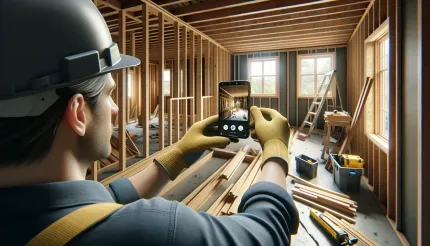In modern construction and development projects, ensuring compliance with safety, building codes, and industry regulations is essential. One of the most effective ways to achieve this is through private provider inspections. These inspections offer a streamlined, flexible, and reliable alternative to traditional government-conducted inspections while maintaining the same level of oversight and accountability. For property owners, developers, and contractors, understanding the role and benefits of private provider inspections can significantly improve project timelines and outcomes.
What Are Private Provider Inspections?
Private provider inspections refer to inspection services conducted by licensed, qualified, and certified third-party organizations or individuals rather than directly by government building departments. These providers are authorized to perform inspections, review plans, and verify that construction projects meet all applicable codes and safety requirements. Essentially, private providers act as an extension of regulatory authorities, ensuring compliance without compromising standards.
These inspections cover a wide range of construction elements, including structural components, electrical systems, plumbing, mechanical systems, and fire safety installations. While the services are privately contracted, the reports and approvals from private provider inspections are legally recognized and can substitute for public inspections in many jurisdictions.
The Importance of Private Provider Inspections
In an industry where project delays can lead to substantial financial losses, private provider inspections offer several significant advantages.
- Time Efficiency: Traditional government inspections often have long waiting periods due to limited resources and high demand. Private providers can typically schedule inspections more quickly, helping projects stay on track.
- Flexibility: Private providers offer flexible scheduling options, accommodating specific project timelines and reducing idle construction time. This flexibility allows for inspections to be conducted when the work is ready, rather than waiting for government availability.
- Expertise and Specialization: Many private providers specialize in particular areas of construction, such as structural, electrical, or mechanical inspections. This expertise ensures a thorough review of complex systems and helps identify potential issues early.
- Cost Management: While private provider inspections involve fees, the reduction in project delays and early detection of errors often results in overall cost savings.
- Accountability and Documentation: Inspections conducted by private providers are documented with detailed reports, photographs, and certification. This documentation can be invaluable for permits, financing, insurance, and future project evaluations.
How Private Provider Inspections Work
The process for private provider inspections typically follows several key steps:
- Pre-Inspection Planning: The property owner or contractor contacts a licensed private provider to arrange inspection services. Plans, permits, and project specifications are submitted for review before the inspection.
- Scheduling: Once documentation is reviewed, the inspection is scheduled based on the project timeline. Private providers offer more flexible scheduling options compared to traditional municipal inspections.
- Inspection Execution: Certified inspectors conduct on-site evaluations, reviewing construction work against applicable building codes, safety standards, and project plans. This may include structural integrity checks, electrical and plumbing system assessments, fire safety compliance, and other critical inspections.
- Reporting and Certification: After completing the inspection, the provider prepares a detailed report outlining compliance, deficiencies, and recommendations. If the project meets all requirements, a certificate of compliance or inspection approval is issued.
- Follow-Up Inspections: For ongoing projects, follow-up inspections may be scheduled to ensure that corrections are made and that subsequent phases of construction meet standards.
Benefits Over Traditional Inspections
While government inspections remain an essential component of regulatory oversight, private provider inspections offer several benefits that can enhance project management:
- Reduced Delays: By providing faster and more flexible scheduling, private providers help minimize construction downtime.
- Enhanced Expertise: Specialized inspectors often have more technical knowledge in specific areas of construction compared to general government inspectors.
- Early Issue Identification: Private providers can detect potential issues at early stages, allowing for corrective action before problems escalate into costly delays or safety risks.
- Improved Client Communication: Detailed inspection reports and direct interaction with the inspection provider improve transparency and allow project stakeholders to make informed decisions quickly.
Common Types of Private Provider Inspections
Private provider inspections cover a wide spectrum of construction needs, including but not limited to:
- Structural Inspections: Assess the integrity and safety of building frameworks, foundations, and load-bearing components.
- Electrical Inspections: Ensure that all electrical systems, wiring, and equipment comply with safety codes and function efficiently.
- Plumbing Inspections: Verify that plumbing installations meet sanitation and safety requirements.
- Mechanical and HVAC Inspections: Review heating, ventilation, air conditioning, and other mechanical systems for proper operation and compliance.
- Fire Safety Inspections: Check fire alarms, suppression systems, and emergency exits for adherence to fire safety standards.
- Energy Compliance Inspections: Evaluate whether buildings meet energy efficiency regulations and standards, which is increasingly important in modern construction.
Challenges in Private Provider Inspections
Although private provider inspections offer many advantages, there are challenges to consider:
- Licensing and Accreditation: Not all private providers are equally qualified. Ensuring that the provider is properly licensed, certified, and recognized by regulatory authorities is essential.
- Cost Considerations: While private providers can save money by reducing delays, the upfront costs may be higher than traditional inspections.
- Coordination with Authorities: In some jurisdictions, private inspections require formal acceptance by government departments. Ensuring proper communication and documentation is critical.
- Consistency of Standards: Maintaining uniformity in inspection standards across different private providers can sometimes be a challenge, requiring oversight and quality assurance measures.
Best Practices for Working With Private Providers
To maximize the benefits of private provider inspections, construction stakeholders should follow several best practices:
- Verify Credentials: Confirm that the provider is licensed, certified, and experienced in the relevant inspection areas.
- Maintain Clear Communication: Establish direct communication channels between the provider, contractor, and project management team to ensure clarity and timely reporting.
- Document Everything: Keep detailed records of inspection reports, certifications, and communications. These documents may be needed for permitting, financing, insurance, or future audits.
- Schedule Strategically: Align inspections with critical project milestones to prevent bottlenecks and minimize construction delays.
- Address Issues Promptly: Take immediate action on any deficiencies or recommendations provided by the private provider to maintain compliance and prevent re-inspections.
Conclusion
Private provider inspections in Gulfport have become an increasingly valuable tool in the construction industry, offering efficiency, expertise, and flexibility while maintaining compliance with building codes and safety regulations. By leveraging the services of qualified private providers, developers, contractors, and property owners can ensure smoother project execution, reduce delays, and achieve higher quality results.
With proper planning, credential verification, and communication, private provider inspections can complement traditional regulatory oversight, ultimately enhancing the success and safety of construction projects. In an industry where timelines, safety, and compliance are critical, the strategic use of private providers is not just a convenience—it is a competitive advantage that safeguards investment and ensures long-term project integrity.


